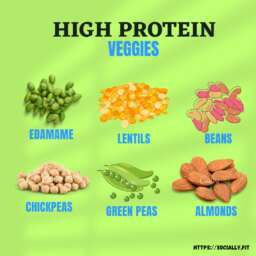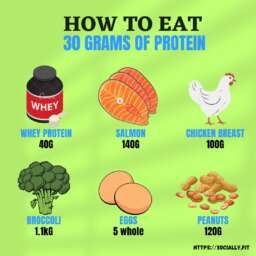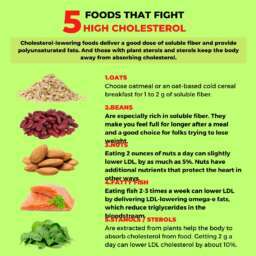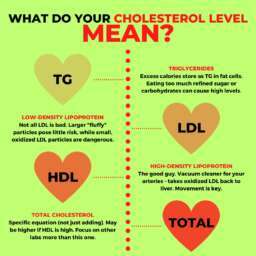Is Besan Good for Weight Loss? Discover how besan (gram flour) can aid in weight loss with its high protein content, low glycemic index, and fiber-rich composition. Learn more about its benefits and how to incorporate it into your diet.
Introduction: Is Besan Good for Weight Loss?

In recent years, many people have turned to natural foods and traditional ingredients to aid their weight loss journeys. One such ingredient that has gained significant attention is besan, or chickpea flour. Many health enthusiasts claim that besan can help with weight loss, but what does the science say? This article will delve deep into the benefits of besan, its nutritional profile, and how you can incorporate it into your diet for effective weight management.
Is Besan Good for Weight Loss
Understanding Besan
What is Besan?
Besan, also known as gram flour or chickpea flour, comes from ground chickpeas. Traditionally used in Indian, Pakistani, and Bangladeshi cuisines, besan is a versatile ingredient. You can use it to make a variety of dishes, from pancakes to fritters. Moreover, its nutty flavor enhances the taste of many recipes, making it a favorite among home cooks.
Nutritional Profile of Besan
When considering besan for weight loss, examining its nutritional profile is crucial. A 100-gram serving of besan typically contains:
- Calories: 387
- Protein: 22 grams
- Fat: 6 grams
- Carbohydrates: 58 grams
- Fiber: 10 grams
- Iron: 4.86 mg
This impressive nutritional profile highlights the benefits of incorporating besan into your diet.
Is Besan Good for Weight Loss
How Besan Aids Weight Loss

Besan, or gram flour, is a versatile ingredient that offers numerous benefits for those looking to lose weight. Below, we explore several key points that highlight how besan can support weight loss effectively.
1. High Protein Content
First and foremost, besan is rich in protein. This high protein content helps to increase satiety, meaning you feel fuller for longer. Consequently, you may consume fewer calories throughout the day. Moreover, protein is essential for muscle maintenance, especially when you are in a calorie deficit for weight loss.
2. Low Glycemic Index
Additionally, besan has a low glycemic index (GI). Foods with a low GI release glucose slowly into the bloodstream, preventing spikes in blood sugar levels. This slow release helps to control hunger and cravings, making it easier to stick to a healthy eating plan. As a result, incorporating besan into your meals can help manage your appetite effectively.
3. Fiber-Rich Composition
Furthermore, besan is high in dietary fiber. Fiber plays a crucial role in digestion and helps regulate bowel movements. It also contributes to a feeling of fullness, which can reduce overall calorie intake. By including fiber-rich foods like besan in your diet, you can promote better digestive health while supporting your weight loss goals.
4. Nutrient-Dense
In addition to being high in protein and fiber, besan is nutrient-dense. It contains essential vitamins and minerals, such as iron, magnesium, and B vitamins. These nutrients support overall health and well-being, which is vital when you are trying to lose weight. A well-nourished body is more likely to function optimally and maintain energy levels during weight loss efforts.
5. Versatile Ingredient
Moreover, besan is incredibly versatile. You can use it in various recipes, from pancakes and fritters to soups and sauces. This versatility allows you to incorporate besan into your meals easily, making it a practical choice for weight loss. By experimenting with different recipes, you can enjoy a variety of flavors while staying on track with your diet.
Is Besan Good for Weight Loss
6. Gluten-Free Option
Another significant advantage of besan is that it is gluten-free. For individuals with gluten sensitivities or celiac disease, besan serves as an excellent alternative to wheat flour. By using besan in your cooking and baking, you can enjoy delicious meals without the adverse effects of gluten, all while supporting your weight loss journey.
7. Supports Healthy Metabolism
Additionally, the nutrients found in besan can support a healthy metabolism. For instance, the presence of B vitamins in besan plays a crucial role in energy production. A well-functioning metabolism can help your body burn calories more efficiently, which is essential for weight loss.
8. Helps Regulate Cholesterol Levels
Furthermore, the fiber in besan can help regulate cholesterol levels. By lowering bad cholesterol (LDL) and increasing good cholesterol (HDL), besan contributes to heart health. A healthy heart is vital for overall well-being, especially when engaging in physical activities to aid weight loss.
9. Reduces Cravings
Moreover, the combination of protein and fiber in besan can help reduce cravings. When you consume foods that keep you full, you are less likely to reach for unhealthy snacks. This reduction in cravings can significantly impact your ability to stick to a weight loss plan.
10. Easy to Incorporate into Diet
Lastly, besan is easy to incorporate into your daily diet. Whether you add it to smoothies, use it as a thickener in soups, or create delicious snacks, besan can fit seamlessly into your meals. This ease of use makes it a practical choice for anyone looking to lose weight without feeling deprived.
In conclusion, besan offers a multitude of benefits that can aid in weight loss. Its high protein content, low glycemic index, fiber-rich composition, and versatility make it an excellent addition to a healthy diet. By incorporating besan into your meals, you can enjoy its numerous advantages while working towards your weight loss goals.
Is Besan Good for Weight Loss
Incorporating Besan into Your Diet

Now that we understand the benefits of besan for weight loss, let’s explore how to incorporate it into your daily meals.
Delicious Besan Recipes
There are numerous ways to enjoy besan. Here are a few delicious recipes to get you started:
- Besan Chilla: This savory pancake is simple to make. Just mix besan with water, spices, and chopped vegetables. Cook it on a skillet until golden brown.
- Besan Ladoo: For a sweet treat, try making besan ladoos. Roast besan in ghee, add jaggery or honey, and roll into small balls.
- Besan and Vegetable Fritters: Combine besan with grated vegetables, spices, and water to create a batter. Fry small portions for a delightful snack.
- Besan Smoothie: Blend besan with yogurt, fruits, and a splash of milk for a nutritious and filling smoothie.
- Besan Curry: Use besan as a base for a thick curry sauce, adding your favorite vegetables and spices for flavor.
Is Besan Good for Weight Loss
Portion Control and Moderation
While besan has numerous health benefits, moderation is key. Overconsumption of any food can lead to weight gain. Therefore, it’s essential to practice portion control when including besan in your meals. Aim to balance your diet with a variety of foods to ensure optimal nutrition.
Is Besan Good for Weight Loss
Comparing Besan with Other Flours

Besan vs. Wheat Flour
| Aspect | Besan (Gram Flour) | Wheat Flour |
|---|---|---|
| Protein Content | Besan boasts a higher protein content, which helps in muscle maintenance and satiety. Consequently, this can aid in weight loss efforts. | Wheat flour has a lower protein content, which may not provide the same level of fullness. Thus, it might lead to increased snacking. |
| Glycemic Index | Besan has a low glycemic index, promoting stable blood sugar levels. As a result, it helps control hunger and cravings effectively. | In contrast, wheat flour has a higher glycemic index, leading to quicker spikes in blood sugar. This can result in increased hunger shortly after consumption. |
| Fiber Content | Additionally, besan is rich in dietary fiber, which supports digestion and enhances feelings of fullness. This fiber-rich composition is beneficial for weight management. | Wheat flour contains less fiber, which may not provide the same digestive benefits. Therefore, it might not be as effective in promoting satiety. |
| Nutritional Profile | Besan is nutrient-dense, offering essential vitamins and minerals like iron and magnesium. This nutrient profile supports overall health during weight loss. | Wheat flour, while providing some nutrients, lacks the same density of vitamins and minerals found in besan. Consequently, it may not support health as effectively during weight loss. |
| Gluten Content | Importantly, besan is gluten-free, making it suitable for those with gluten sensitivities. This allows for a wider range of dietary options. | Conversely, wheat flour contains gluten, which can cause issues for individuals with gluten intolerance or celiac disease. Thus, it limits options for those affected. |
| Versatility | Moreover, besan is incredibly versatile and can be used in various dishes, from savory to sweet. This versatility makes it easy to incorporate into meals. | Wheat flour is also versatile but may not offer the same range of flavors and textures as besan. Therefore, it might not be as exciting for culinary experimentation. |
| Caloric Content | Besan generally has a lower caloric density compared to wheat flour. This means you can consume more volume for fewer calories, aiding in weight loss. | Wheat flour tends to be higher in calories, which can contribute to weight gain if consumed in excess. Thus, portion control becomes more critical. |
| Cooking Properties | When cooked, besan creates a denser texture, which can be satisfying in various recipes. This density can help curb hunger effectively. | Wheat flour produces lighter textures, which may not be as filling. Consequently, this can lead to overeating in some cases. |
| Health Benefits | Furthermore, the health benefits of besan extend beyond weight loss. It can help regulate cholesterol levels and support heart health. | While wheat flour has some health benefits, it does not offer the same cholesterol-lowering effects as besan. Therefore, it may not be as beneficial for heart health. |
| Cost and Availability | Lastly, besan is often more affordable and widely available in many regions, especially in South Asian markets. This accessibility makes it a practical choice for many. | Wheat flour is also widely available, but prices can fluctuate based on market conditions. Thus, it may not always be the most economical option. |
Is Besan Good for Weight Loss
Besan vs. Almond Flour

| Aspect | Besan (Gram Flour) | Almond Flour |
|---|---|---|
| Protein Content | Besan is high in protein, which supports muscle maintenance and promotes satiety. This can help reduce overall calorie intake. | Almond flour also contains a good amount of protein, but it is slightly lower than besan. However, it still contributes to feelings of fullness. |
| Carbohydrate Content | Besan has a moderate carbohydrate content, making it suitable for various diets. It provides energy without causing significant blood sugar spikes. | In contrast, almond flour is lower in carbohydrates, which can be beneficial for those following low-carb or ketogenic diets. This lower carb content helps in managing weight effectively. |
| Glycemic Index | Besan has a low glycemic index, which helps maintain stable blood sugar levels. This characteristic aids in controlling hunger and cravings. | Almond flour also has a low glycemic index, making it a great option for blood sugar management. Consequently, it can help prevent sudden hunger pangs. |
| Fiber Content | Additionally, besan is rich in dietary fiber, which supports digestion and enhances feelings of fullness. This fiber-rich composition is beneficial for weight management. | Almond flour contains fiber as well, but it is generally lower than that found in besan. However, the fiber in almond flour still contributes to digestive health. |
| Nutritional Profile | Besan is nutrient-dense, offering essential vitamins and minerals like iron and magnesium. This nutrient profile supports overall health during weight loss. | Almond flour is also nutrient-rich, providing healthy fats, vitamin E, and magnesium. These nutrients support heart health and overall well-being. |
| Gluten Content | Importantly, besan is gluten-free, making it suitable for those with gluten sensitivities. This allows for a wider range of dietary options. | Almond flour is naturally gluten-free as well, making it an excellent alternative for those avoiding gluten. This characteristic enhances its appeal in gluten-free baking. |
| Versatility | Moreover, besan is incredibly versatile and can be used in various dishes, from savory to sweet. This versatility makes it easy to incorporate into meals. | Almond flour is also versatile, commonly used in baking and cooking. It adds a nutty flavor to recipes, enhancing the overall taste of dishes. |
| Caloric Content | Besan generally has a lower caloric density compared to almond flour. This means you can consume more volume for fewer calories, aiding in weight loss. | Almond flour tends to be higher in calories due to its fat content. Therefore, portion control is essential when using almond flour in recipes. |
| Cooking Properties | When cooked, besan creates a denser texture, which can be satisfying in various recipes. This density can help curb hunger effectively. | Almond flour produces a lighter texture in baked goods, which can be appealing for certain recipes. However, it may not provide the same level of satiety as besan. |
| Health Benefits | Furthermore, the health benefits of besan extend beyond weight loss. It can help regulate cholesterol levels and support heart health. | Almond flour is rich in healthy fats, particularly monounsaturated fats, which can help lower bad cholesterol levels. This makes it beneficial for heart health as well. |
Is Besan Good for Weight Loss
Potential Side Effects of Besan

- Monitor for Allergies
Individuals with legume allergies should approach besan with caution. Start with a small amount to observe any allergic reactions before incorporating it into your diet. - Introduce Gradually
If you are new to besan, gradually increase your intake. This approach helps your digestive system adjust and minimizes the risk of bloating or gas. - Stay Hydrated
Drinking plenty of water can aid digestion, especially when consuming fiber-rich foods like besan. Ensure adequate hydration to help prevent digestive discomfort. - Practice Portion Control
While besan is nutritious, it is also calorie-dense. Use moderate portions to avoid excess calorie intake, particularly if you are monitoring your weight. - Soak or Sprout
To reduce phytic acid levels, consider soaking or sprouting chickpeas before grinding them into flour. This process can enhance nutrient absorption and digestion. - Choose Gluten-Free Brands
Although besan is naturally gluten-free, cross-contamination may occur during processing. Select certified gluten-free besan to ensure safety for those with gluten sensitivities. - Combine with Other Foods
Pairing besan with protein or healthy fats can help stabilize blood sugar levels. This combination may enhance satiety and prevent spikes in blood sugar. - Be Mindful of Overall Carbohydrate Intake
If you have diabetes, keep track of your carbohydrate consumption, including besan. Balance your meals with a mix of proteins, healthy fats, and fiber-rich vegetables. - Consider Individual Digestive Sensitivity
Pay attention to how your body reacts to besan. Some individuals may experience digestive discomfort, so adjusting your intake based on personal tolerance is essential. - Consult a Healthcare Professional
If you have underlying health conditions or concerns about incorporating besan into your diet, consult a healthcare professional or nutritionist for personalized advice.
Is Besan Good for Weight Loss
Protein Content Comparison of Besan with Other Flours
| Flour Type | Protein Content (per 100g) | Description |
|---|---|---|
| Besan (Chickpea Flour) | 22g | Besan is high in protein, providing essential amino acids that support muscle maintenance. |
| Wheat Flour | 10-12g | Wheat flour has a moderate protein content, which may not be as effective for satiety. |
| Almond Flour | 21g | Almond flour is rich in protein and healthy fats, promoting fullness and weight management. |
| Oat Flour | 13g | Oat flour contains a decent amount of protein, but it is lower than besan and almond flour. |
| Rice Flour | 7g | Rice flour has a low protein content, making it less effective for weight loss compared to besan. |
| Coconut Flour | 20g | Coconut flour is high in protein but also high in fat, which can contribute to calorie density. |
| Quinoa Flour | 14g | Quinoa flour offers a good protein source, but it is still lower than besan. |
| Sorghum Flour | 9g | Sorghum flour has a lower protein content, which may not support weight loss as effectively. |
| Spelt Flour | 15g | Spelt flour provides a moderate protein level, but it is not as high as besan. |
| Teff Flour | 13g | Teff flour contains a reasonable amount of protein, but it falls short compared to besan. |
Analysis
- High Protein Advantage: Besan stands out with its high protein content, which can enhance satiety and support muscle maintenance during weight loss.
- Comparison with Other Flours: While almond flour is comparable in protein, many other flours, such as rice and sorghum, fall significantly short, making them less effective for weight management.
- Nutritional Balance: Incorporating besan into meals can provide a balanced approach to nutrition, especially when combined with other protein sources.
Is Besan Good for Weight Loss
Glycemic Index Comparison of Besan and Wheat Flour
| Flour Type | Glycemic Index (GI) | Description |
|---|---|---|
| Besan (Chickpea Flour) | 28 | Besan has a low glycemic index, promoting stable blood sugar levels and reducing cravings. |
| Wheat Flour | 70 | Wheat flour has a high glycemic index, leading to rapid spikes in blood sugar and increased hunger. |
| Almond Flour | 10 | Almond flour has an even lower GI, making it excellent for blood sugar control and weight management. |
| Oat Flour | 55 | Oat flour has a moderate GI, which can still cause some blood sugar fluctuations. |
| Rice Flour | 85 | Rice flour has a high GI, which can lead to quick energy spikes and subsequent crashes. |
| Coconut Flour | 51 | Coconut flour has a moderate GI, but its high fiber content helps mitigate blood sugar spikes. |
| Quinoa Flour | 53 | Quinoa flour has a moderate GI, providing a balanced energy release compared to wheat flour. |
| Sorghum Flour | 62 | Sorghum flour has a moderate GI, which can still affect blood sugar levels. |
| Spelt Flour | 55 | Spelt flour has a moderate GI, making it a better option than wheat but not as effective as besan. |
| Teff Flour | 45 | Teff flour has a lower GI, which helps in maintaining stable blood sugar levels. |
Analysis
- Blood Sugar Control: Besan’s low glycemic index makes it a superior choice for weight management, as it helps maintain stable blood sugar levels and reduces hunger.
- Comparison with Wheat Flour: In contrast, wheat flour’s high GI can lead to rapid spikes in blood sugar, making it less suitable for those aiming to lose weight.
- Overall Benefits: Choosing flours with lower GI values, such as besan and almond flour, can significantly enhance dietary strategies for weight loss and blood sugar management.
Is Besan Good for Weight Loss
Fiber Content Comparison of Besan with Other High-Fiber Foods
| Food Type | Fiber Content (per 100g) | Description |
|---|---|---|
| Besan (Chickpea Flour) | 10g | Besan is rich in fiber, promoting digestive health and enhancing feelings of fullness. |
| Chia Seeds | 34g | Chia seeds are extremely high in fiber, providing excellent digestive benefits and satiety. |
| Flaxseeds | 27g | Flaxseeds are also high in fiber and omega-3 fatty acids, supporting heart health and digestion. |
| Oat Bran | 15g | Oat bran is high in soluble fiber, which can help lower cholesterol levels and improve digestion. |
| Psyllium Husk | 70g | Psyllium husk is very high in fiber, often used as a supplement for digestive health. |
| Quinoa | 7g | Quinoa contains a moderate amount of fiber, contributing to overall dietary fiber intake. |
| Brown Rice | 3.5g | Brown rice has a lower fiber content compared to besan, making it less effective for weight loss. |
| Barley | 17g | Barley is high in fiber, particularly beta-glucan, which supports heart health and digestion. |
| Sweet Potatoes | 3g | Sweet potatoes provide some fiber but are lower than besan, making them less effective for satiety. |
| Whole Wheat Bread | 6g | Whole wheat bread has a moderate fiber content, but it is still lower than that of besan. |
Analysis
- Fiber Benefits: Besan’s fiber content plays a crucial role in promoting digestive health and enhancing satiety, making it a valuable addition to a weight loss diet.
- Comparison with Other Foods: While chia seeds and flaxseeds offer higher fiber levels, besan remains a strong contender among flours, especially when considering its versatility in cooking.
- Dietary Variety: Including a variety of high-fiber foods, such as besan, chia seeds, and oat bran, can significantly improve overall fiber intake, supporting weight loss and digestive health.
Is Besan Good for Weight Loss
Caloric Differences Between Besan and Other Common Flours
| Flour Type | Calories (per 100g) | Description |
|---|---|---|
| Besan (Chickpea Flour) | 387 | Besan is calorie-dense but provides a good balance of protein and fiber, aiding in weight loss. |
| Wheat Flour | 364 | Wheat flour has a similar caloric content but lacks the high protein and fiber benefits of besan. |
| Almond Flour | 575 | Almond flour is significantly higher in calories due to its fat content, which can hinder weight loss if consumed excessively. |
| Oat Flour | 389 | Oat flour has a comparable caloric content to besan but offers less protein, making it less effective for satiety. |
| Rice Flour | 366 | Rice flour has a similar calorie count but is lower in protein and fiber, which may not support weight loss as effectively. |
| Coconut Flour | 400 | Coconut flour is higher in calories and fat, which can contribute to a higher overall caloric intake. |
| Quinoa Flour | 368 | Quinoa flour has a similar caloric content but provides more protein than wheat flour, aiding in weight management. |
| Sorghum Flour | 339 | Sorghum flour is lower in calories but also lower in protein, which may not promote fullness as effectively. |
| Spelt Flour | 340 | Spelt flour has a similar caloric content but offers more protein than regular wheat flour, supporting weight loss. |
| Teff Flour | 367 | Teff flour has a comparable calorie count and provides a good balance of nutrients, making it a healthy option. |
Analysis
- Caloric Density: Besan’s caloric density is balanced by its high protein and fiber content, making it a suitable choice for weight loss diets.
- Comparison with Other Flours: While almond flour is higher in calories, many other flours, such as wheat and rice, offer similar caloric values but lack the nutritional benefits of besan.
- Nutritional Strategy: Incorporating besan into meals can help manage caloric intake while providing essential nutrients that support weight loss.
Is Besan Good for Weight Loss
Nutritional Profile Comparison of Besan with Other Legumes
| Legume Type | Protein (per 100g) | Fiber (per 100g) | Calories (per 100g) | Description |
|---|---|---|---|---|
| Besan (Chickpea Flour) | 22g | 10g | 387 | Besan is nutrient-dense, providing a good balance of protein and fiber for weight loss. |
| Lentils | 25g | 8g | 116 | Lentils are lower in calories and high in protein, making them excellent for weight management. |
| Black Beans | 21g | 8g | 132 | Black beans offer a good protein source and are low in calories, supporting weight loss. |
| Kidney Beans | 24g | 7g | 127 | Kidney beans are high in protein and fiber, promoting satiety and aiding in weight loss. |
| Pinto Beans | 21g | 9g | 143 | Pinto beans provide a decent protein source but are slightly higher in calories. |
| Green Peas | 5g | 5g | 81 | Green peas are lower in protein and fiber compared to besan, making them less effective for weight loss. |
| Soybeans | 36g | 9g | 446 | Soybeans are high in protein but also higher in calories, which may hinder weight loss if consumed in excess. |
| Mung Beans | 24g | 7g | 105 | Mung beans are low in calories and high in protein, making them a great option for weight management. |
| Fava Beans | 26g | 9g | 341 | Fava beans are high in protein and fiber but have a higher caloric content than besan. |
| Split Peas | 25g | 8g | 118 | Split peas are low in calories and high in protein, supporting weight loss effectively. |
Analysis
- Nutritional Balance: Besan offers a strong nutritional profile with a good balance of protein and fiber, making it effective for weight loss.
- Comparison with Other Legumes: While legumes like lentils and black beans provide similar benefits, besan’s versatility in cooking makes it a unique option for various diets.
- Weight Loss Support: Incorporating besan alongside other legumes can enhance dietary variety while supporting weight loss through its nutrient-dense composition.
Is Besan Good for Weight Loss
Conclusion: Is Besan Good for Weight Loss?

In summary, while besan is a nutritious addition to many diets, it is important to recognize its potential side effects. By being mindful of allergies, digestive sensitivities, and portion sizes, individuals can enjoy the benefits of this versatile flour without experiencing adverse effects. Gradual introduction and proper hydration can further enhance the positive impact of besan on overall health.
Moreover, understanding the nutrient profile of besan allows for better integration into daily meals. Its high protein and fiber content can support weight loss and overall wellness when consumed in moderation. However, awareness of its caloric density and potential for digestive issues is essential for maintaining a balanced diet.
Ultimately, besan can be a valuable component of your culinary repertoire, offering diverse flavors and textures in various dishes. By following the guidelines outlined above, you can safely include besan in your diet while reaping its numerous health benefits and enjoying delicious meals.
Is Besan Good for Weight Loss
FAQs: Is Besan Good for Weight Loss?
1. Is besan gluten-free?
Yes, besan is made from chickpeas, making it gluten-free and suitable for those with gluten intolerance.
2. Can I eat besan every day?
Yes, you can include besan in your daily diet, but ensure you practice portion control and balance it with other foods.
3. Does besan help with weight loss?
Yes, due to its high protein and fiber content, besan can aid in weight loss by promoting satiety and stabilizing blood sugar levels.
4. What are some easy recipes with besan?
You can make besan chilla, fritters, ladoos, and even add it to smoothies or curries.
5. Are there any side effects of eating besan?
Some individuals may experience digestive discomfort, such as bloating, particularly if they consume it in large quantities. It’s best to introduce it gradually into your diet.
Is Besan Good for Weight Loss. Is Besan Good for Weight Loss.
Click here to know more about weight loss. Subscribe to Workout with Hunar for weight loss and workout videos.















One thought on “Is Besan Good for Weight Loss?”